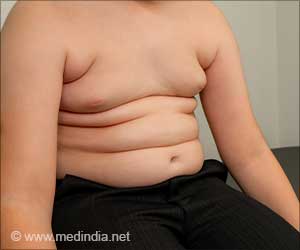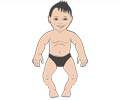- Lee WWR. An overview of pediatric obesity. Pediatric Diabetes. 2007; 8 (Suppl. 9)
- Kumud Khanna. Nutrition and Weight management In Textbook of Nutrition and Dietetics. New Delhi: India; 2001.
- Childhood overweight and obesity - (http://www.who.int/dietphysicalactivity/childhood/en/)
- American Obesity Association. Centers for Disease Control and Prevention. "Childhood Overweight".
- Kumar S, Mahabalaraju DK, Anoop MS. Prevalence of Obesity and its Influencing factor among Affluent School Children of Davangere City. Indian Journal of Community Medicine. 2007;32(1)
- Raj M, Sundaram, KR, Paul M, Deepa AS, Krishna Kumar, R. Obesity in Indian children: Time trends and relationship. The National Medical Journal of India. 2007;20(6)
- Singh M, Sharma M. Risk Factors for obesity in children. Indian Pediatrics. 2005; 42(17)
What is Childhood Obesity?
Obesity is said to be the forerunner of various health conditions. What remains the matter of concern is that it is just not adults who are largely affected, but it is now growing like a curse amongst children too.
According to the WHO, childhood obesity is one of the most serious public health challenges of the 21st century. They have estimated the number of overweight children to be over 42 million by the end of 2010, of which, around 35 million are living in developing countries. Various studies conducted on the urban Indian children report a high prevalence of underweight and overweight children.

These are just numbers. More important is for parents to realize and protect their child from being unnecessarily malnourished. Yes, over nourishment is also a form of malnourishment. Obesity increases the risk of diabetes, cardiovascular disease, hypertension, cholesterol, asthma and orthopedic problems at a younger age whether or not obesity persists into adulthood. Obesity most commonly begins in childhood between the ages of five and six, and increases during adolescence. Studies show that a child who is obese and between the ages of 10 and 13, has an 80 percent chance of becoming an obese adult. Studies indicate that pediatric obesity is the result of persistent adverse changes in food intake, lifestyle, and energy expenditure.





















